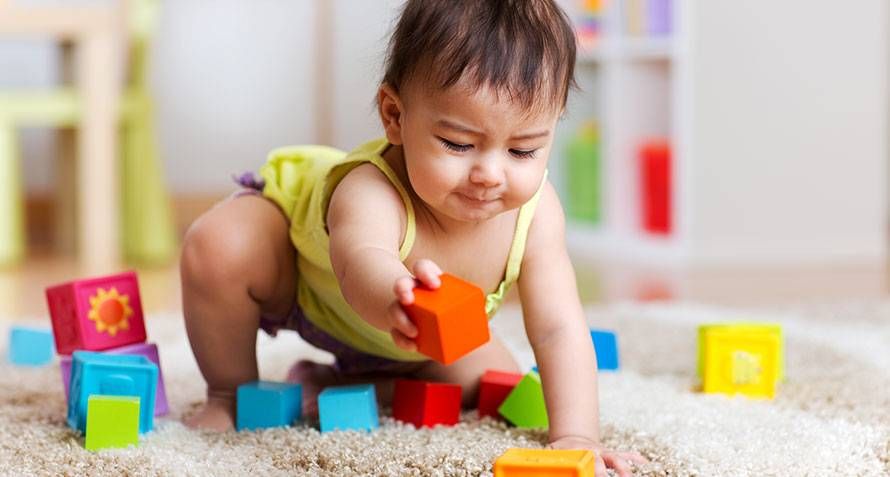When it comes to the things you worry about with your little wiggle worm, play doesn’t seem like it should be towards the top of your list, but independent play can really benefit your baby. Learning more about how to get your lil’ noodle started with independent play now can provide you benefits in the long-term.
Benefits of Independent Play
Independent play is the perfect storm of benefits for you and your mini-me. Babies learn a lot through solo play and can explore their world at their own pace. You’ll see benefits with development, such as sitting up and crawling. It’s also excellent to help them to learn from their mistakes, boost their self-esteem, assist them with their focus and instill in them self-reliance. Now, self-reliance in infants may not seem like a big deal since they’ll still need you, but it can help with reducing the clinginess and even separation anxiety that babies and toddlers may go through as they get older.
Setting Up Solo Playtime
There are a few steps that you’ll want to take to set your little one up for independent play.
- Make sure that your little sweetie is ready for playtime. You may put them down for some alone time to find that they’re crying or unsettled. Make sure that they aren’t hungry or need a diaper change. Covering all the baby basics before play time can make your life easier.
- Put out a selection of items to play with for baby. Part of independent play is getting to make their own choices. Give them some of their favorite board books and toys.
- Babies can get bored just like everyone else. You may want to change up where you put them down at for play time for a change of scenery or switch up the toys you offer. A pot with a wooden spoon can be a lot of fun if you can handle the noise. All it takes sometimes is demonstrating what they can do with their toys on their own.
Handling Clinginess
Starting solo play may make you feel like you’re cutting off your own arm or leg. It can be hard to give your sweetie that alone time they need to start exploring the world. It’s easy to give in when baby fusses or acts clingy and put an end to independent playtime. However, you need to stick with it, as this gives them tools for the future. Even if it makes your heart ache that they haven’t adjusted to it just yet.
There are some things that you can do to handle clinginess with your little noodle:
- Make sure that you get plenty of one-on-one time with baby. Reading books, playing with toys, and even tickle time is excellent to get your little one satisfied with their time with you so that they can feel more independent later.
- Use peekaboo as a way to help your noodle learn that while you’re going away, you’ll be right back. Just let them know that you have to leave for a minute, and walk out of their eyesight. As you’re leaving, you can do a few peekaboos to reaffirm that you’ll be back.
- When starting out, you may find it beneficial to play with baby for a few moments and then walk away. Each time you do this staying and leaving action, you can leave longer each time. Just don’t come back right when baby starts to cry or yell, as this enforces that they can bring you coming back at a run without learning how to engage in solo play. When they start to cry or yell, simply tell them ” I’ll be right back. I’m right here.” That way, they can hear you even though they can’t see you right at that moment.
As there’s no manual that’s delivered at the same time as your baby, it’s up to you to figure out how to shape them for the future. Independent play may not seem like a vital skill, but it can make a huge difference in your baby’s behavior for years to come.
Are you having any issues with your little when it comes to sleep or other behaviors? Contact us today to discuss how our services can help you.





